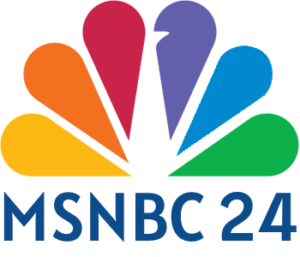The COVID-19 pandemic has served as a brutal stress test for governments around the world. In the case of the United States, it has starkly illuminated the critical flaws in the nation’s federalist system and its inability to coordinate a cohesive national response. With over one million lives lost, millions more disabled by long COVID, and trillions of dollars drained from the economy, the failures of the American approach are undeniable and deeply troubling.
A glaring issue in the American pandemic response has been the lack of centralized coordination. While other countries implemented nationwide lockdowns, consistent mask mandates, and coordinated vaccine rollouts, the U.S. response was marred by inconsistency and contradiction. The federal government issued recommendations, but enforcement was left to individual states—leading to policies that varied wildly not only between states, but often between neighboring counties. Such a decentralized approach to a global threat resulted in widespread confusion, resistance to compliance, and ultimately, unnecessary deaths.
Consider the contrasting actions of Florida and California. Florida, under Governor Ron DeSantis, not only resisted mask mandates but also actively prohibited local governments and school districts from implementing them. Meanwhile, California imposed strict lockdowns, promoted mask usage, and rolled out aggressive vaccination campaigns. These opposing strategies led to vastly different public health outcomes, yet they coexisted within the same nation, sending conflicting messages to the American public and weakening the overall response.
The impact of these contradictory policies extended beyond health outcomes—they eroded public trust. When the government appears divided and incoherent, citizens are less likely to comply with health measures. Mixed messages about the seriousness of the virus, the efficacy of vaccines, and the necessity of masking fueled widespread skepticism and resistance. Political leaders, eager to maintain their popularity and appeal to their base, often downplayed the virus or outright dismissed scientific guidance. This led to the politicization of basic public health practices, turning masks and vaccines into symbols of partisan identity rather than tools to save lives.
Another striking example is the mishandling of data and transparency. In New York, the Cuomo administration underreported deaths in nursing homes by excluding residents who died in hospitals after contracting COVID-19. This deliberate obfuscation was intended to protect political reputation but ultimately undermined the integrity of public health information and delayed critical reforms. When citizens cannot trust their leaders to tell the truth, especially in a crisis, the entire public health framework collapses.
The consequences of these failures have been devastating. Long COVID now afflicts millions of Americans, many of whom are unable to return to work. The Brookings Institution estimates that this has removed approximately 4 million people from the labor force, resulting in an annual economic loss of $200 billion. These individuals face not only chronic health issues but also financial instability, loss of healthcare, and the psychological toll of a diminished quality of life. This ongoing crisis is the legacy of a leadership vacuum and a fragmented response.
Furthermore, the educational sector experienced chaos. With no national guidance, schools in different states operated under vastly different rules. Some reopened fully with no masking, while others remained virtual for over a year. The result was a deepening of the educational divide, particularly harming low-income and minority students who lacked access to remote learning tools. The long-term academic and social effects of this disruption will be felt for decades.
Healthcare infrastructure also buckled under the pressure. Hospitals in states that refused to implement safety measures were overwhelmed. ICU beds filled up, ventilator shortages became common, and medical staff were stretched to the brink. Thousands of frontline workers left the profession due to burnout, trauma, and lack of institutional support. This exodus has left a permanent scar on the American healthcare system, reducing its capacity to deal with future crises.
America’s fragmented pandemic response was not just a failure of logistics—it was a failure of leadership, accountability, and moral responsibility. When governors act in direct opposition to federal health agencies, when scientific advice is mocked on political stages, and when lives are sacrificed for electoral gains, the nation suffers. The idea of “states’ rights” took precedence over citizens’ lives, revealing a governance model unfit for modern global threats.
In conclusion, the COVID-19 pandemic should be a wake-up call for America. The patchwork of state responses, driven by political self-interest and ideological rigidity, led to preventable deaths, economic devastation, and a historic erosion of public trust. If the United States hopes to better manage future public health emergencies, it must address the systemic flaws in its federal structure, prioritize science over politics, and commit to transparency and unity. Anything less will doom the nation to repeat the tragic mistakes of this crisis.

